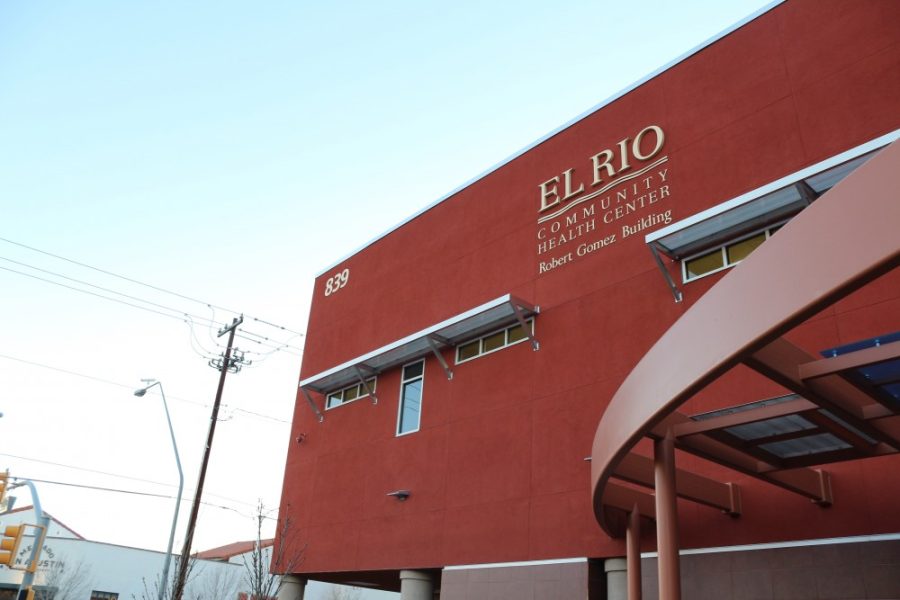For many teens and young adults, access to education about sex and reproductive health is limited. A program created through El Rio Health is changing that.
The El Rio Reproductive Health Access Project — RHAP for short — was created by Joy Baynes, a nurse practitioner and employee of El Rio Health. The project formally began in June 2017 after months of running focus groups and finding and training the right people to lead the project. For Baynes, the right leaders weren’t fellow nurse practitioners or other medical professionals — they were teens.
“The program, from the beginning, is peer-designed,” Baynes said.
Baynes explained that the research done in her focus groups coupled with input from the teen community showed that transportation, cost and time were some of the biggest challenges teens and young adults faced when it came to getting access to reproductive health services. With that research, the teen leaders who had been recruited to RHAP began to develop their program.
“[RHAP leaders] came up with a plan,” Baynes said. “That plan, essentially, was [to offer] walk-in teen clinics with extended hours after school until seven or eight at night, transportation provided via Uber or cabs and have it be a peer-led model because the research shows that young people do benefit a lot from hearing information from their peers.”
RHAP started out with only one clinic, located at the El Pueblo Center on the south side of Tucson. At first, the program was not garnering the results Baynes had expected it to. But after creating a social media presence for RHAP, the program has grown to run eight clinics out of six different locations with plans to continue expanding.
“The way the model works is that it is an all walk-in basis,” Baynes said. “It’s totally confidential. They don’t bring in IDs or insurance cards. The state of Arizona has a law that allows young people ages fourteen and over to have, what they call, the ‘minor’s right to access reproductive health services’ without a parent or a guardian.”
Not only are the RHAP clinics available to all teens through walk-in appointments, but they also come at no cost to them.
“El Rio, as a health system, underwrites all the costs of the reproductive health services,” Baynes said. “So [teens] don’t have to pay for anything.”
Once teens come to the RHAP clinics, they attend what Baynes calls a “peer education session,” which is led by the teen leaders of RHAP. In this session, information about sexually transmitted diseases and birth control is disseminated. Pre-and-post-session surveys are given to evaluate the teens’ level of knowledge and it allows treatments to be provided on the same day.
While RHAP teaches its teens about sex education and reproductive health, it’s not like the typical programs you would find in school. According to Title 7, section R7-2-303 of the Arizona Administrative Code, sex education in schools is not mandatory and must be abstinence-based.
“TUSD is now trying to incorporate a more comprehensive sex ed package, but before, it was really just abstinence only or abstinence-based,” Baynes said. “[RHAP] is medically accurate, science supported, comprehensive sex ed that is gender-inclusive and LGBTQ inclusive.”
Baynes isn’t the only member of RHAP that understands and appreciates the importance of comprehensive and medically accurate sex education program. The teen leaders understand and appreciate it too.
Dezjanira Acuña, an intern with El Rio and a leader of RHAP, was amazed when she discovered the program and what it does for the teen community of Tucson.
“The best part [of working with RHAP] is definitely the education aspect of it,” Acuña said. “When we present to [other teens] about different types of birth control, or if they ask us about some myths they heard online about what could happen to their bodies. Just being able to see them walk out with a little bit more confidence and knowing more about their reproductive health and what they can do for themselves, it’s good to know that we’ve given them that information so they can take steps themselves to see what works the best for them.”
If you are between the ages of 14 and 20 and are interested in attending an El Rio RHAP clinic, information about dates and times are available on the website elrio.org/service/teens/, or its Instagram and Twitter @ElRioRhap.








